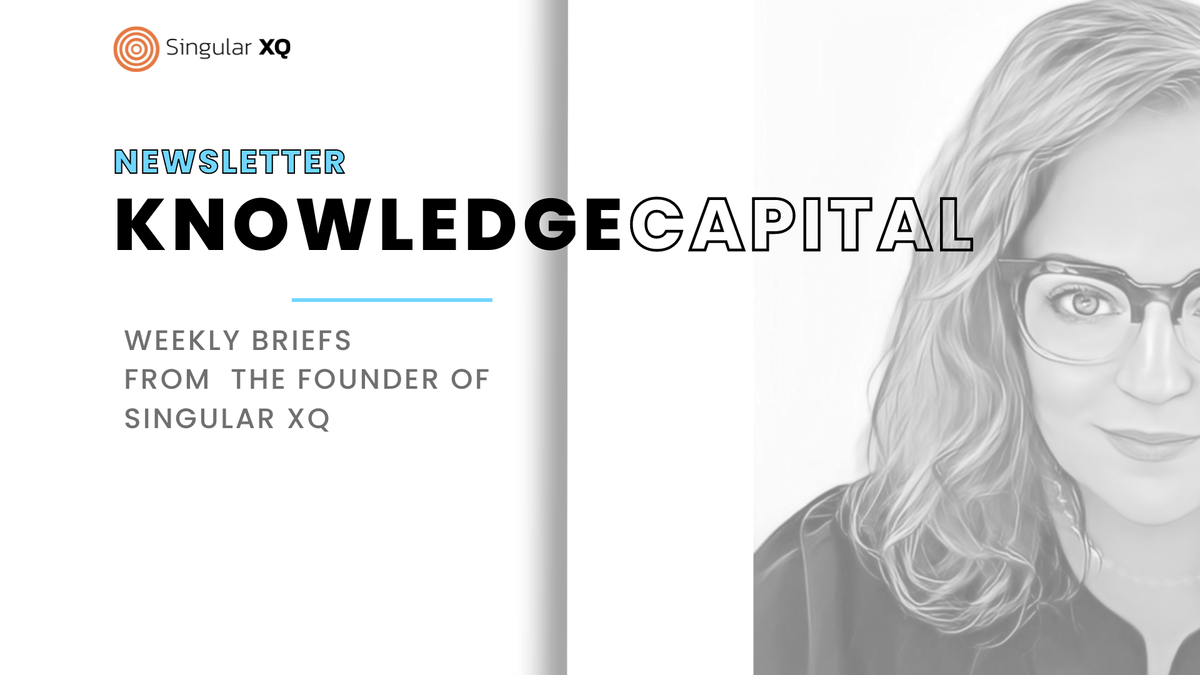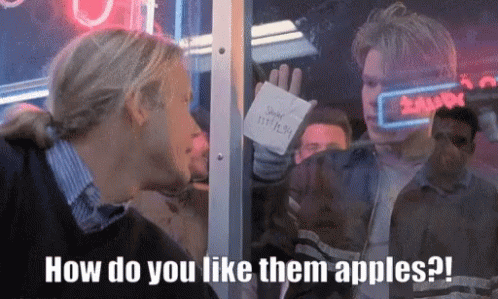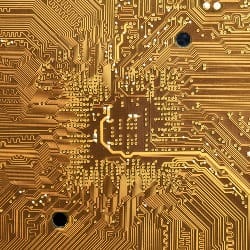Transcendence, a woman's algorithm, Einstein, NVIDIA's new chip, and academia's whoops moment

Transcendent thinking in adolescence is linked to greater happiness and productivity

Making meaning or “transcendent thinking” is a milestone in teen development. This breaking study reveals that students encouraged to do it experience grey matter development and growth and later experience greater personal happiness and capacity for executive thinking. The fact that adults need to engage in it to be happy and that it is actively blocked in many working environments is a concern at Singular XQ. It is the foundation of our continuing education and professional development pedagogy—look for more in my forthcoming book, Singular XQ: Next Gen Intelligence for a Next Gen World.
Katherine Quinn's algorithm shows that all neural nets "think" in the same way

You won’t see the headline written that way anywhere else, but that is the story. Quinn developed an algorithm that images a large probabilistic dataset to find the most essential recurrent patterns. This means the growing list of neural nets deployed all leverage the same process to see low-dimensional patterns in a high-dimensional space. This finding will help engineers develop more efficient algorithms for better outcomes. At a certain point, we decided that theory was inefficient and tinkering was better—sometimes, we can reverse engineer to good effect. One might posit that tinkering might get you somewhere for short-term gain but that the overall efficiency would be improved with greater cooperation between theoretical research and industrial practice. We imagine that many of these nets are unnecessarily elaborate or redundant, which will lead to greater efficiency.
Einstein only ever did one experiment--and it was just found in a French museum

Speaking of which, if anyone ever starts the praxis versus theory conversation with you again, you can ask them whether or not they think Einstein contributed meaningfully to practical everyday things. If they can’t tell you, let them know that without Einstein’s theories, we wouldn’t have paper towels, laser pointers, solar power, or certain kinds of stock market forecasts. If the developers tell you, yeah, the diagrams and the theories tend to fall apart when you try to make them work, the ones doing the work are the ones who know the most. Tell them Einstein only ever did one experiment and it was found recently in a French museum. We agree that the ones doing the work must be included, but the people thinking about the work are also important. We like thinkers AND makers and SingularXQ we think they can sometimes be the same person. We like those people most of all. So, how do you like THEM apples?
NVIDIA delivers a new AI chip promising 30x faster processing speeds

Investors are starting to get a little skeptical of big announcements, as the NVIDIA stock dips as investors wait for the proof goods on NVIDIA. NVIDIA, which has more than tripled in value this year based on its AI-friendly hardware offerings, announced its new chip, which they brag is 30x faster. How fast can they get? Well, according to Moore’s Law, we will max out in about 70 years. That’s a lot of money for NVIDIA if they keep delivering like they did for the GPU.
Whoops, scientific journals are running papers with GPT text within them, unedited

We are going to leave this right here--calling into question the corruption of non-existent peer review. We think the use and overuse of assistive LLMs are going to have a Darwin Award action, and we are here for it.
Have a great week, everyone!






